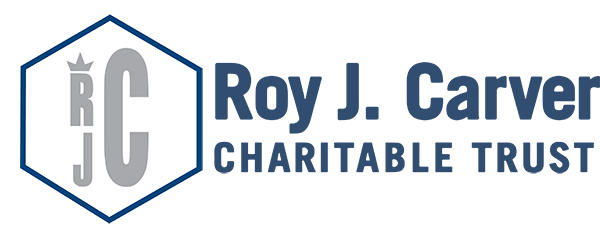Reporting
According to Internal Revenue Service regulations, the Carver Trust must monitor funded projects in order to guarantee that grant awards are being used to support legitimate, tax-exempt programs. To meet this obligation, all grantees are required to furnish the Trust with project reports on an annual basis, describing the uses of grant funds and providing a clear record of expenditures. Generally, a report will be comprised of a narrative on the programmatic goals of funded activities, as well as a financial report in the same format as the approved grant budget, showing the amount budgeted for each line item, the amount expended against each line item, and the resulting balance. Annual reports are evaluated on the basis of project aims as defined in the approved proposal and budget; therefore, applicants are urged to make every effort to clearly articulate programmatic and financial goals in the grant proposal.
Evaluation
In addition to the basic reporting requirements, the Carver Trust requires its grantees to conduct a project evaluation. Project evaluation is defined as methods and means employed to measure, assess and communicate the effectiveness of grant-funded activities in meeting previously specified objectives, as well as to identify any unforeseen or unintended consequences resulting from project implementation. Information thus gathered may assist in the review of project outcomes and planning of new initiatives, as well as to strengthen and improve existing programs. The Trust considers outcomes reporting and assessment as an important component of all funded projects and gives preference to those applications with well-designed, comprehensive plans for evaluation.
All proposals submitted for consideration by the Trust should include a written plan for evaluation, which will be reviewed as part of the request. Evaluation plans should clearly describe the methods to be employed in collecting, analyzing and synthesizing information in order to gauge progress toward specific program goals. Depending on the nature of the project, indicators may be qualitative or quantitative, descriptive or interpretive, but should address the following:
- A determination of effectiveness or impact, in terms of the original project goals
- A review of any unintended consequences, positive or negative, resulting from project implementation
- An identification of means to improve project effectiveness and impact, including any alternative methods of implementation
- Plans for dissemination of project results or models. Some projects, such as original research and certain pilot programs, will require more extensive evaluation plans. This is especially important for multi-year projects, for which annual evaluation and reporting are essential in qualifying for grant payments beyond the first year of the award. In such cases, it is recommended that applicants make every effort to design a detailed assessment methodology, including a separate timeline and budget, if necessary. Although grantees are required to design and implement their own plans for evaluation and to report their findings in a timely manner, Trust staff may occasionally conduct its own evaluations of funded projects. Evaluation methods employed may include, but are not limited to, site visits and independent reviews or audits. The Trust may also request additional reports or updates and reserves the right to separately analyze and distribute data collected from project evaluations and reports.
